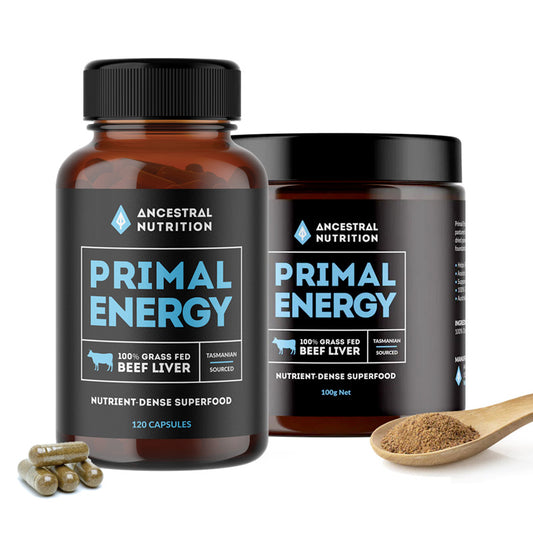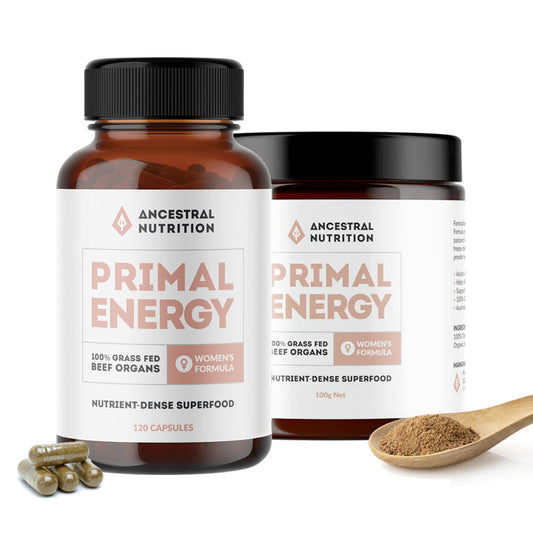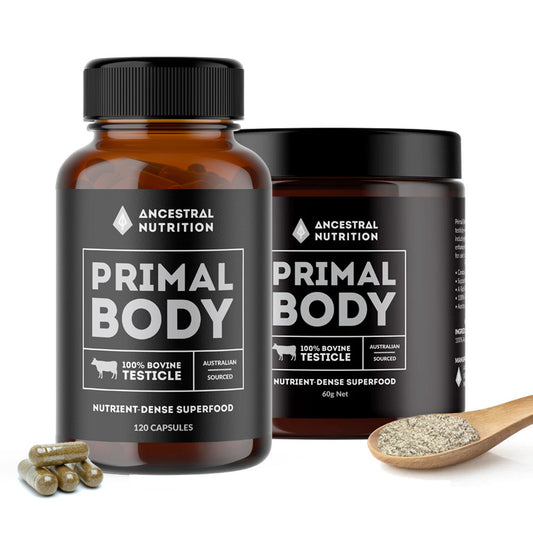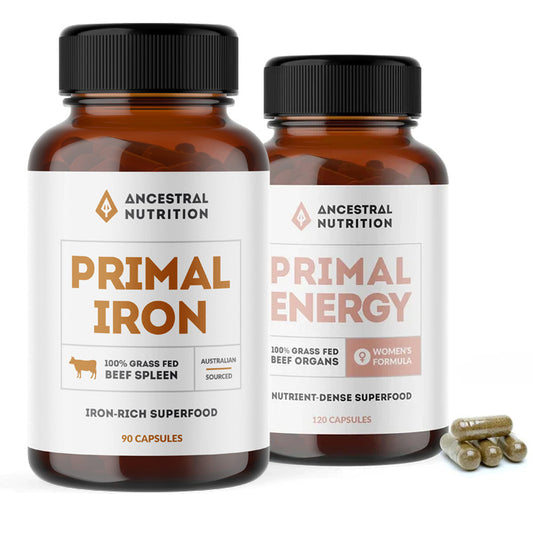The Role of Beef Organs in Hormonal Wellbeing
article by Ancestral Nutrition

Beef organs are often referred to as “nature’s multivitamin” because of their rich nutritional profile. They contain a wide range of vitamins, minerals, and amino acids that contribute to overall health and may support normal hormonal function as part of a balanced diet.
Liver
Rich in vitamin A, B12, B6, iron, and copper:
- Vitamin A contributes to normal immune function and plays a role in cell development, which can influence hormone pathways.
- B vitamins support energy metabolism and help the body process and utilise nutrients efficiently.
- Iron and copper contribute to oxygen transport and energy production.
Kidneys
A natural source of selenium, which:
Supports healthy thyroid function—a key regulator of metabolism and hormonal activity.
Acts as an antioxidant, helping protect cells from oxidative stress.
Heart
Provides CoQ10 and zinc:
- CoQ10 is involved in energy production at the cellular level.
- Zinc contributes to immune health and supports reproductive system function.
- Whole Food Support for General Wellbeing
Including nutrient-dense foods such as organ meats in your diet may help provide foundational support for your body’s natural hormone regulation processes. Combined with lifestyle factors like sleep, movement, and stress management, these foods can be part of a holistic approach to wellbeing.
Looking for a Convenient Option?
Our Primal Energy Beef Liver supplements are:
- Organic, 100% hormone, antibiotic and GMO-free
- Sourced from grass-fed and grass-finished cattle in pristine Tasmanian pastures
- Freeze-dried to retain their nutrient content
- Available in easy-to-take capsules or powder form
Learn More About Primal Energy Beef Liver Here.












